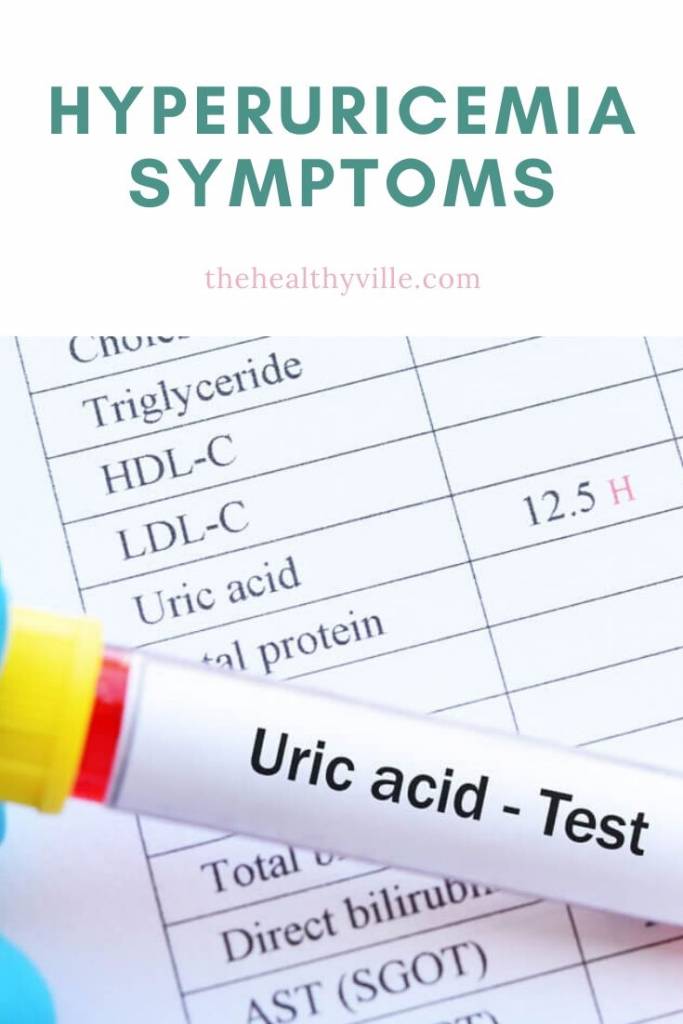One of hyperuricemia symptoms that you can notice first is high uric acid in laboratory tests. See why it happens and all the risk associated with it.
Having high uric acid is one of the hyperuricemia symptoms. Uric acid is a substance that is our body produces after metabolizing molecules purines. The body acquires purines through foods such as beans, anchovies or liver.
High uric acid is a condition that affects a large part of the population. People directly associate it with gout disease which is a syndrome of the inflammation of the joints. However, hyperuricemia can cause many other pathologies.
The incidence of this situation is increasing, because we currently do not take care of our diet as we should. Although there is great genetic influence, the food is one of the main triggers of this problem.
In this article we explain everything you need to know about having high uric acid and other hyperuricemia symptoms. It is important to know the possible consequences to raise awareness and take more care of our lifestyle.
What are the causes of having high uric acid?
Having high uric acid is in direct relation to food. Having an unbalanced diet, very rich in red meat, seafood and fish makes its concentration rise. In addition, alcohol is also a cause.
However, they are not the only factors that influence it. According to recent studies, men are more at risk for this condition than women. Interestingly, exercising intensely for a long time can also cause uric acid to rise.
Similarly there are certain pathologies in association with it, such as diabetes or kidney disease. Chemotherapy for some type of cancer can cause it, too.
Meats are one of the foods that raise uric acid the most when you consume them in excess.
What consequences do hyperuricemia symptoms cause?
Most people hear of uric acid because of gout. In fact, many people associate that pathology as simply a pain in the big toe. However, this opinion is far from all the consequences that high uric acid can produce.
It is important to know that can cause higher risk of suffering from cardiovascular disease. High uric acid causes nitric oxide to decrease. It is an essential factor so that our blood vessels can dilate and the blood supply is correct.
Therefore, when nitric oxide decreases the arteries become stiffer and it is easier for a vascular problem to occur. For example, the risk of hypertension and atherosclerosis increases.
The truth is that many of the patients who suffer from this condition have no symptoms. This further complicates the situation because doctors detect the problem when damage to the vessels or organs such as the kidney is already there.
Kidney disease
You eliminate uric acid because the kidneys filter and excrete it in the urine. What happens is that, when the concentrations are very high, stones can form inside the kidney. These stones end up causing damage to the organ.
Gout
Gout is a syndrome that occurs because uric acid crystals settle inside the joints and damage them. It appears in the form of attacks of joint pain. Most often it affects the big toe.
In addition to pain, the joint may be swollen and red. As the gout progresses the joint loses mobility. Many people experience persistent discomfort.
Gout is the characteristic disease of hyperuricemia.
How to diagnose it?
The most normal is that hyperuricemia does not produce any symptoms. In fact it is estimated that almost 7% of men have it. However, you can check the concentration of uric acid with a simple blood test.
Therefore, the ideal is to see a doctor frequently and perform routine tests. Thus, although there are still no symptoms, preventive measures can be instituted to avoid complications. For example improve the diet.
If there has been any type of manifestation in the joints, synovial fluid is usually extracted from them to analyze it. Radiography, ultrasound and other techniques are also used to confirm the diagnosis.
Don’t forget to SHARE the hyperuricemia symptoms with your friends and family on your social networks!

